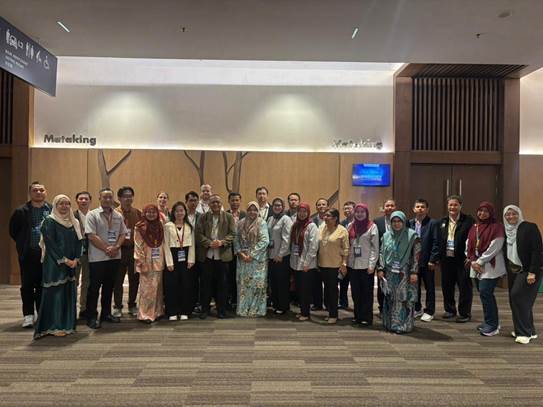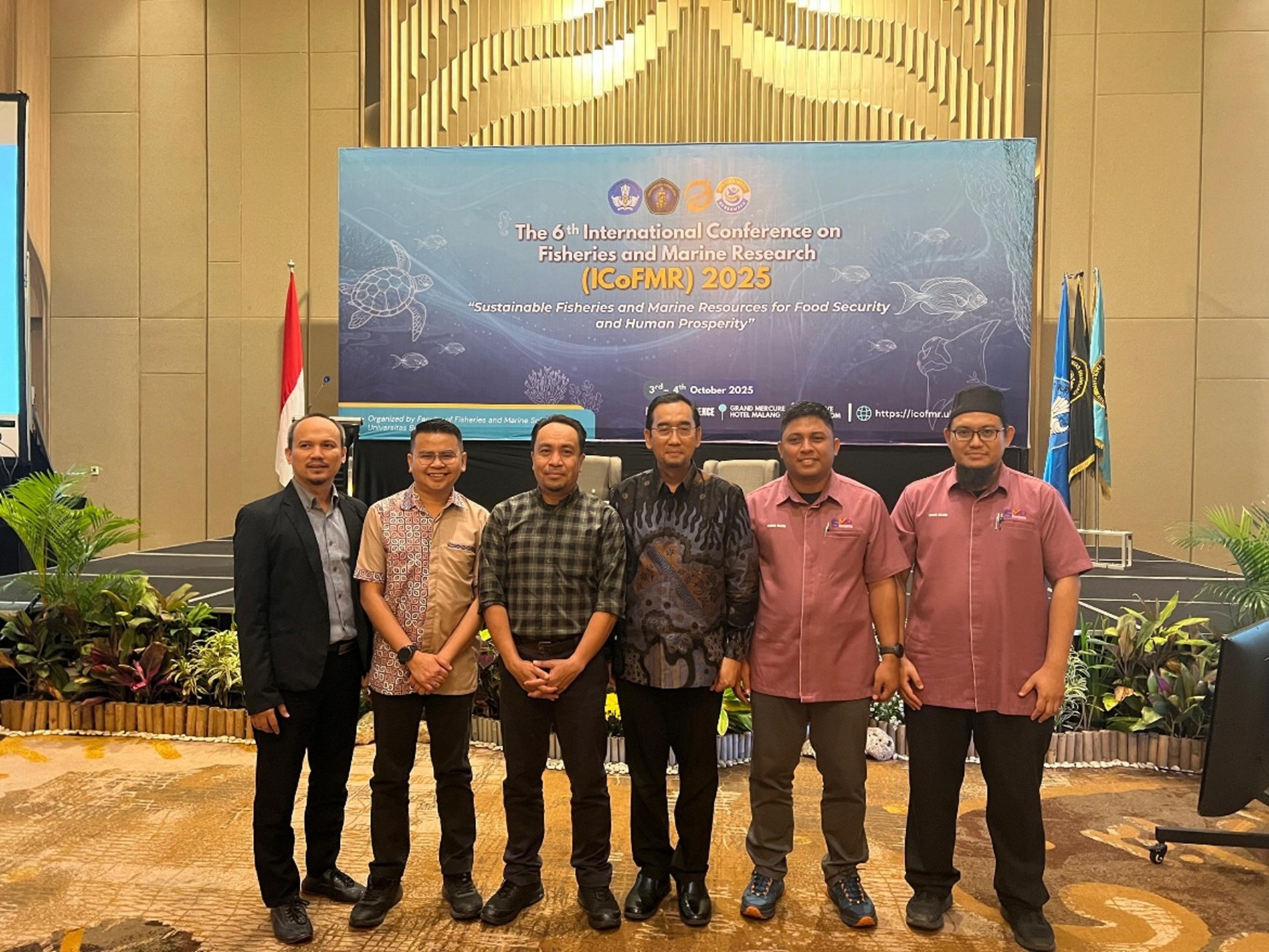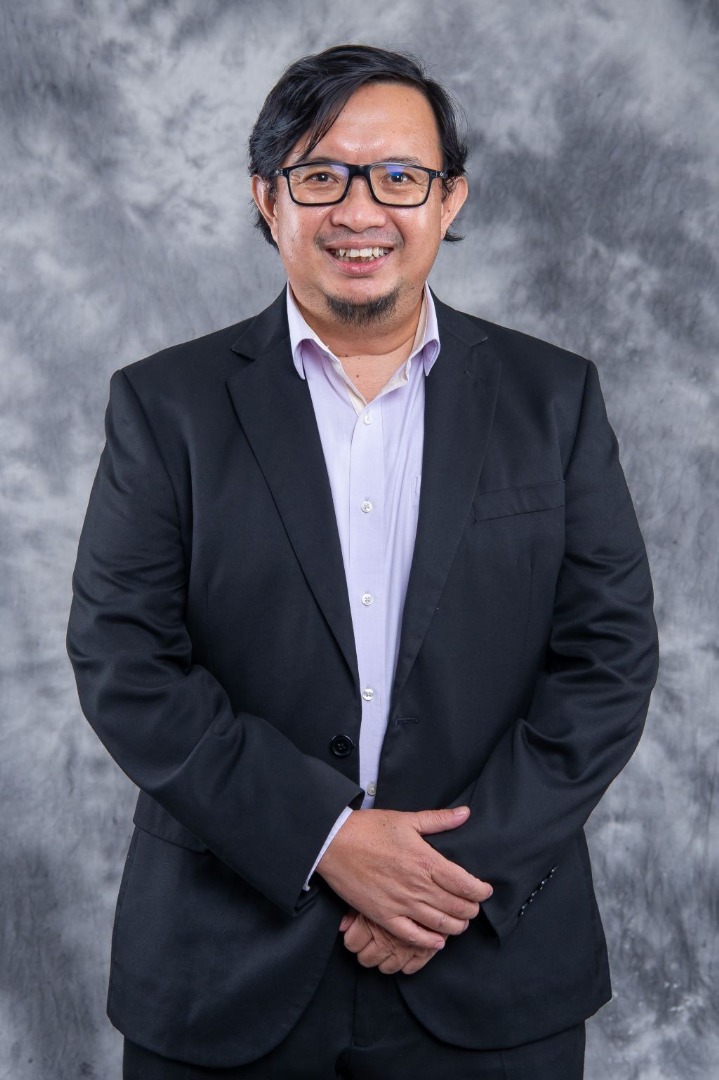 Universiti Malaysia Sabah (UMS) and the Royal Institution of Surveyors Malaysia (RISM) have formalised a Letter of Intent (LoI) recently to strengthen collaboration in academic development, professional training and research in surveying, engineering and the built environment.
Universiti Malaysia Sabah (UMS) and the Royal Institution of Surveyors Malaysia (RISM) have formalised a Letter of Intent (LoI) recently to strengthen collaboration in academic development, professional training and research in surveying, engineering and the built environment.
The LoI was jointly signed by UMS Vice-Chancellor, Prof. Datuk Dr. Kasim Haji Mansor and RISM President, Sr Wan Ainon Zuraiha Wan Abd Khalid, marking a significant step forward in institutional partnership.
The signing ceremony was held during the 9th Sabah International Surveyors Congress (9SISC) organised by RISM Sabah Branch at the Sabah International Convention Centre (SICC).
Also present were member of the UMS Board of Directors, Datuk Aliasgar Basri, Director General of Dewan Bandaraya Kota Kinabalu (DBKK) Datuk Sr Lifred Wong, RISM Sabah Branch Chairman Ts Sr Allen Leslie Chin, Deputy Chairlady of RISM Sabah Branch and Organising Chairlady of the 9SISC Sr Melissa Felix Lee, Immediate Past Chairman of RISM Sabah Branch Sr Robert Tseu, UMS Faculty of Engineering Dean Associate Prof. Ir. Dr. Abu Zahrim Yaser, and coordinator of the Built Environment Programme Prof. Ar. Nurakmal Goh.
In their addresses, Kasim and Allen expressed sincere appreciation for the initiation of this significant milestone between UMS and RISM. They stated that this collaboration will strengthen the relationship between academia and the professional sector in line with the shared vision of producing UMS graduates who are professional, competent and ready to meet emerging industry needs.
“This collaboration represents our collective aspiration to support the growth of Sabah and the nation through education, innovation and industry engagement,” Kasim said.
He said the future collaboration covers joint seminars, workshops, guest lectures, curriculum with industry relevance, industrial training, staff and student attachments and technical visits to RISM members’ companies, which would provide UMS students with real exposure to professional practice.
According to him, the LoI further promotes joint research and publication in areas such as construction management, sustainable design and Building Information Modelling (BIM), which includes capacity-building programmes, community outreach initiatives and sustainability-driven activities, reflecting the shared responsibility to contribute positively to society and the environment.
Kasim highlighted that the partnership includes planning of Continuing Professional Development (CPD) activities for RISM members and UMS academicians, as well as micro-credential programmes that aim to strengthen the lifelong learning and enhancing graduate employability.
He announced that UMS would introduce two new degree programmes under the Built Environment cluster, the Bachelor of Architecture in March 2026 and the Bachelor of Quantity Surveying in September 2026.
Kasim said the signing represented trust, collaboration and shared purpose, adding that UMS and RISM were committed to nurturing the next generation of professionals who would drive Sabah’sprogress.
“With RISM’s professional expertise and UMS’s academic strength, I am confident that Sabah can position itself as a hub of professional excellence and sustainable development, the true Brain of Borneo,” he said.
Allen highlighted that RISM will provide a strong commitment to UMS for improving the students’ skills, knowledge and quality in professional development, and hope that the collaboration will continue for many years to come and continue to benefit the next generation of students.
“It is a wonderful beginning to have UMS lecturers joining in this year’s congress as organising committee members,” Allen said.
As concluding remarks, Kasim and Allen expressed appreciation to all contributors involved in the congress and looking forward to the success of future collaborations between the academics and industry.



 Universiti Malaysia Sabah (UMS) continues to strengthen its national standing as its student-led innovation project, ReIPvolution, garners an outstanding series of recognitions through the rural education initiative SULAM ReIP.
Universiti Malaysia Sabah (UMS) continues to strengthen its national standing as its student-led innovation project, ReIPvolution, garners an outstanding series of recognitions through the rural education initiative SULAM ReIP. A total of 658 participants and 20 presenters from 17 countries attended the Global Virtual Conference on Digital Transformation in Higher Education (DX25), organised by Universiti Malaysia Sabah (UMS) at the Sabah International Convention Centre (SICC) recently.
A total of 658 participants and 20 presenters from 17 countries attended the Global Virtual Conference on Digital Transformation in Higher Education (DX25), organised by Universiti Malaysia Sabah (UMS) at the Sabah International Convention Centre (SICC) recently. The visit of the delegation from the Faculty of Food Science and Nutrition (FSMP), Universiti Malaysia Sabah (UMS) to Universitas Brawijaya (UB) and Universitas Islam Malang (UNISMA) recently marked a new chapter in strengthening research and academic collaboration networks between Malaysia and Indonesia.
The visit of the delegation from the Faculty of Food Science and Nutrition (FSMP), Universiti Malaysia Sabah (UMS) to Universitas Brawijaya (UB) and Universitas Islam Malang (UNISMA) recently marked a new chapter in strengthening research and academic collaboration networks between Malaysia and Indonesia. Political campaigners in the upcoming Sabah State election must adopt authentic, youth-centric strategies on social media to effectively engage young voters.
Political campaigners in the upcoming Sabah State election must adopt authentic, youth-centric strategies on social media to effectively engage young voters.